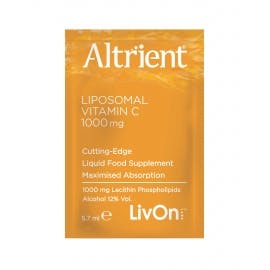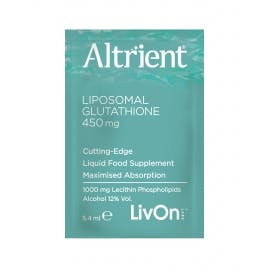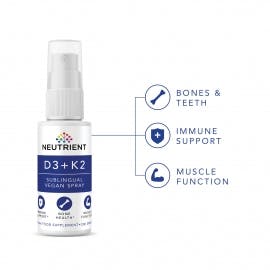Ready steady, winter proofing for runners
Runners around the world beware – failing to consider your lung health and immune strength during training could be your biggest winter risk!
Whilst stamina, heart health and leg muscle strength are important factors for any athlete, optimal performance lung health and a robust immune system should also be placed high on the list of your winter health and fitness agenda.
The respiratory and immune system should take pole position during a winter running schedule and here’s why…
Runner’s lungs
Serious runners must battle the elements no matter what time of year and winter is no exception. Come rain or shine marathon and triathlon enthusiasts can be found pounding the pavements all over the world. To maintain this dedication, runners need to have particularly healthy lungs to maximise the delivery of energising oxygen to active muscle groups.
How the lungs work
Oxygen enters the bloodstream through the lungs via your windpipe (trachea). The windpipe divides into airways called bronchi, which branch into smaller and smaller airways. The bronchi and smaller bronchioles are lined with smooth muscles which help to expand the airways during exercise. At the tips of these bronchioles are tiny air sacs called alveoli, which is where gas exchange happens: fresh air in, carbon dioxide out.
As well as carrying oxygen the lungs are designed to protect the body from the inhalation of germs and pollutants. This is achieved by the production of mucus in the small airways which helps to trap any unwanted materials.
Lung challenges
Bacterial infections like bronchitis and allergies (such as asthma) may help trigger inflammation in the bronchioles and alveoli. This creates a build-up of mucus within the tissue, as well as tightening of the airways and spasms in the smooth muscles which support the tiny airways. Low grade chronic systemic inflammation is known to result in reduced lung function, not what you need during an intense training schedule.
The lungs may also become damaged as a result of smoking or breathing in pollutants, dusts and fumes over a sustained period of time. All these factors could interfere with the normal mechanisms in which air is exchanged within the lungs. Once the airways are damaged, breathing normally may become difficult and this could ultimately influence or compromise athletic performance.
Protecting your lungs
Help to protect your lungs by:
- Giving up smoking
- Reducing your exposure to air pollution
- Improving the air quality in your home
- Paying close attention to your nutritional intake
Importance of nutrition for lung health
Respiratory diseases are characterised by airway and systemic inflammation, obstructed airflow and reduced lung function. Poor dietary patterns have been linked to the risk of respiratory disease, however some success has been found with healthy dietary approaches.
For example, the Mediterranean diet is shown to protect against allergic respiratory diseases such as asthma, helping to reduce typical symptoms. This may be partly due to the high intakes of fresh fruit and vegetables which are rich in antioxidants, vitamins, minerals and phytochemicals.
Avoiding a typically western dietary style that consists of high levels of refined grains, red meats, high fat dairy products and sugar is recommended as this pattern of eating is thought to be associated with increased risks of asthma attacks. What’s more, a high fat, fast food diet has been shown to be a potential factor for airway inflammation.
Research also suggests that omega-3 rich foods such as oily fish, walnuts and flaxseeds may also have positive effects for respiratory conditions such as asthma and chronic obstructive pulmonary disease (COPD).
Runner’s immunity
The winter season is a time when all of us become more susceptible to picking up bugs, but this may be especially so for runners and extreme athletes. High training loads, prolonged exercise intensity, injury or poor recovery time are shown to be associated with depressed immune cell function.
Lengthy periods of strenuous exercise have also been shown to heighten oxidative stress. Runners and endurance athletes should therefore be mindful of their antioxidant requirements and make sure they are gaining sufficient antioxidant rich foods in the diet. Inadequate or inappropriate nutrition has been shown to exacerbate negative influences on immune competence and increase the risk of infection.
Ensuring sufficient antioxidants may also help to protect muscles and connective tissue from free radical damage, important for effective and speedy recovery. If the body’s antioxidant balance is out of kilter this may result in inflammation and tissue degradation.
Dietary deficiencies of protein and specific micronutrients have been associated with immune dysfunction for many years. In addition to this many athletes are still fat phobic, unaware that essential fatty acids support normal immune function and help to regulate inflammation.
A healthy balanced diet that includes a variety of colourful fruit and vegetables, good quality protein such as chicken, eggs, beans and fish plus fibre rich complex carbohydrates should deliver the nutrition support that a runner needs during the winter months.
Notable nutrients
For added nutritional support, dedicated athletes favour these top three nutrients:
- Glutathione GSH - is made up of three amino acids: cysteine, glycine and glutamic acid and is found in abundance throughout all cells. Glutathione has multiple biological roles including preventing damage to important cellular components caused by reactive oxygen species such as free radicals, heavy metals and lipid peroxides. GSH is highly concentrated in the lung epithelial lining fluid and is involved in a series of biochemical reactions that help to protect tissues against inhaled oxidants and toxins. Evidence from research confirms that ultra-endurance athletes have a greater need to protect their bodies from oxidative damage due to the extraordinary volume of exercise they participate in. What’s more, scientists have identified that prolonged physical exercise depletes glutathione levels. Dietary sources of glutathione include avocados, spinach and asparagus. However, this nutrient tends to be poorly absorbed whereas supplements such as liposomal Altrient Glutathione GSH provides maximised absorption.
- Vitamin C - studies show that vitamin C supplements may help to increase glutathione levels. Vitamin C also aids the absorption of iron in the gut which is an essential mineral used for transporting oxygen to cells for energy production. Low iron is a common cause of fatigue. Vitamin C also contributes to the protection of cells from oxidative stress and has the additional benefit of contributing to the normal function of the immune system.
- Vitamin D - is particularly useful for runners as it contributes to the maintenance of normal muscle function and contributes to the normal function of the immune system.
Liposomal supplements such as Altrient C and Altrient GSH are exceptionally well absorbed and provide valuable nutritional support for runners looking to enhance a healthy balanced diet.
Jaqueline Newson BSc (Hons) Nutritional Therapy
REFERENCES
- Impaired lung function is associated with systemic inflammation and macrophage activation. https://erj.ersjournals.com/content/45/2/557
- British Lung Foundation. How your lungs work. https://www.blf.org.uk/support-for-you/how-your-lungs-work/what-else-do-the-lungs-do
- Nutrition and Respiratory Health—Feature Review. https://www.ncbi.nlm.nih.gov/pmc/articles/PMC4377870/
- Glutathione! https://www.ncbi.nlm.nih.gov/pmc/articles/PMC4684116/
- Glutathione: Overview of its protective roles, measurement, and biosynthesis. https://www.ncbi.nlm.nih.gov/pmc/articles/PMC2696075/
- Vitamin C elevates red blood cell glutathione in healthy adults.https://www.ncbi.nlm.nih.gov/pubmed/8317379
- Lung glutathione adaptive responses to cigarette smoke exposure. https://respiratory-research.biomedcentral.com/articles/10.1186/1465-9921-12-133




.jpg?auto=format&q=45&w=262&trim=auto)
.jpg?auto=format&q=45&w=262&trim=auto)
